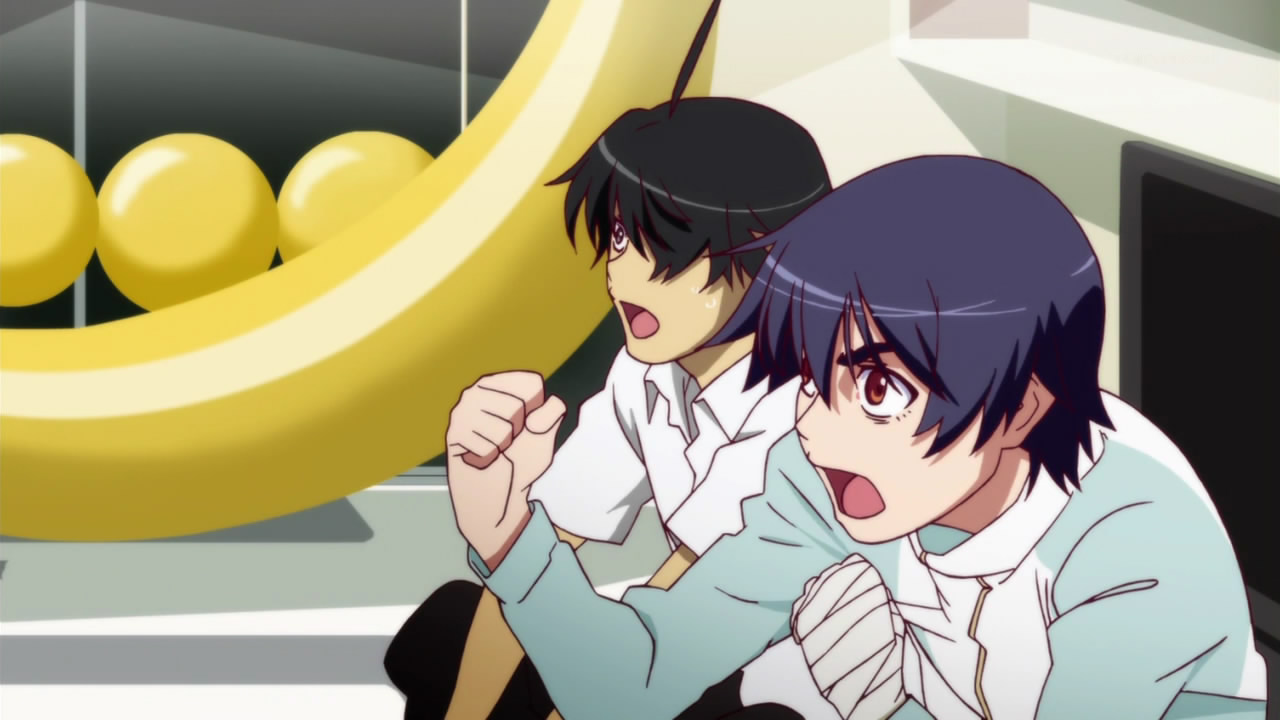What is an item below 100 bucks that everyone should own?
Very correct. You can solve bad culture by throwing more money at the problem. Preferably all at once with zero maintenance budget or governance so that the amenities in question can become non-functional monuments to your superior culture. Future generations will find these and marvel at your ingenuity from the safety of the water cooler.
I was floored when I opened the beta and found that almost all existing features survived the transition. In a single month! You're a monster that makes the rest of us developers look bad 😉
I know that there's an active ongoing discussion about monetization models and I'm certain that there's room for improvement... but at the end of the day you can't make everyone happy. I just wanted you to know that, as a long-time fan, I sincerely appreciate what's been accomplished here. Cheers! Don't forget to take some well-deserved you time once things quiet down a little.
Here's the app I use FWIW: https://play.google.com/store/apps/details?id=com.ivianuu.pie
I went through a lot of different apps before settling on this one. It's a perfect recreation (+ way more customization) and works flawlessly. The app is 100% worth the pricetag if you want Pie controls on stock.
Can you imagine this technology being used to impersonate a president? It would be bedlam, but fortunately there are no girl presidents!
I started using Pie controls with Paranoid Android back in 2015 and never gave them up. It's great for muscle memory
National Lab (LBNL) results support LK-99 as a room-temperature ambient-pressure superconductor
The story was divine retribution for blasphemy against arch
Cheetah Cub died from our emissions
Sakurai's independent. Nintendo always goes to him first when it's time to make a new entry, but Sakurai's under no obligation to accept. Nevertheless, he keeps coming back to the table, so it's probably fair to assume that he enjoys directing this series.
There is currently no engagement-based individual curation on Lemmy. The two most commonly used ranking algorithms (Hot & Top) are based strictly on votes. Top sorts by the total number of votes from within a given time window while Hot considers all votes against a steep time-based curve.
Not coincidentally, this is the same algorithm methodology used by Reddit. Two Reddit users subscribed to the exact same communities will see the exact same Hot/Top feeds, regardless of how much or little they individually engage with specific posts. Lemmy intentionally copied this community-based engagement methodology, presumably because it's part of the secret sauce that makes Reddit-like platforms special.
Clearly you and I participated in very different school experiences. In highschool, I got on my bus each day at 7:30 and got back off the bus at 16:00. If you subtract the 30 minute lunch period, that adds up to almost exactly 8 hours each day.
Factoring in the 2 hours of homework that was regularly assigned, I actually have substantially more free-time as a working 9-5 adult (my school did not have "study hall" time). A young me would have done unspeakable things for a chance at abolishing homework!
I'll grant you skateboarding & BMX on a technicality, despite those things both definitely not involving walking. Also... do people really enjoy getting drunk or high in parking lots? I'd just assume anyone doing that was homeless or truant.
Because it's a parking lot. Name the top five things that people enjoy doing in the parking lot that aren't parking or driving. You can't, because it's an empty lot where humans don't belong.
Though, for the record, this is one of the few situations where humanity would have been better off if Google had simply paid their web engineers to go out into the world and kick animals all day long instead.
I've been gaming on Linux exclusively for 5 years now. I like it, but it's not perfect.
Experience
Pros
- 1st-class developer experience.
- I don't have to deal with MS's increasingly insane OS design. No fucking with my preferences. No baked-in junkware. No invasive telemetry. No dark-pattern mindgames.
- No fighting with the Windows compositor. Better system performance more generally.
- Better filesystems. Better package managers. No driver nonsense (AMD user btw). Total customization.
- Yes, really! The miracle of Linux is that almost every driver you'll need comes baked in. I've installed exactly one device driver in 5 years and even that one is technically preinstalled for most people (I manually installed it because I was customizing it)
Cons
- Some games simply will not work. Usually for anticheat reasons, but this is also true for obscure stuff more generally. Part of gaming on Linux is just accepting that some games are not for you anymore.
- Outside of Proton, you often feel like a 2nd-class citizen. Wading out into the weeds when you just wanna game sucks.
- FWIW: Lutris helps. The experience still isn't great, but it'll gets you 90% of the way there. I've successfully used it to play games like Overwatch, Hearthstone, and MTG Arena with minimal tinkering.
- Wayland/X11 shenanigans. It's a total quagmire. Your issues with that ultrawide were almost certainly related to this in some way.
Picking a Distro
There are a lot of pitfalls when choosing a distribution. I can't personally tell you which one to pick, so instead I'll give targetted advice.
Things to avoid
Avoid Ubuntu. Avoid Fedora/RedHat/CentOS. Avoid any distro with less than 5 years of active development history. Avoid niche single-purpose distros, including gaming ones. Probably also avoid NixOS until you're more comfortable with Linux in general.
tl;dr: Pick something that's very popular, but not Ubuntu. Ideally, the project should have multiple full-time donation-supported maintainers and a detailed wiki.
Rolling Release vs. Point Release
A "point release" distribution is one which guarantees a certain level of stability out-of-box. It achieves this by partially freezing the available packages at well-tested & known working versions (explanation simplified for brevity). This way, when you install the distro, there are very few or even no "gotcha" moments where one niche part of the system randomly breaks during daily usage.
The downside of this strategy is that, over time, the packages on your system get more and more out of sync with the rest of the world. Eventually, you have to sit down and do a big, fat upgrade to the latest version. This has the effect of potentially breaking lots of things all at once, which makes upgrading these systems comparatively onerous.
A "rolling release" distribution has no numbered versions. You just upgrade your packages and presto: you're rolling the latest code. Yes, there are more day-to-day difficulties, though you generally experience fewer cascading catastrophic failures, since usually only one thing will go wrong at a time. The risk of day-to-day issues is then addressed by splitting the distribution into time-gated "channels" where new package releases are intentionally delayed for days/weeks based on which one you've opted into. This gives you as a user flexible control over how current vs. stable you want your system to be.
tl;dr: For most newcomers, I recommend using a rolling release set to the safest available release channel. It offers most of the day-to-day stability of a versioned release with none of the upgrade headaches. These days, I feel that versioned releases are mostly only preferable in corporate/institutional usecases (this is a controversial, personal opinion and not a statement of fact, but I welcome flamewars down below...)
Wayland vs. X11
Wayland replaces X11 (which is old and bad)... but it also breaks compatibility with stuff. If you use Wayland, you will have more issues, so I generally recommend newcomers choose X11 if the installer gives them an option.
With that being said, sometimes you have to choose Wayland because you need its modern features, such as display scaling. If you have a >1440p monitor or use monitors with mixed refresh rates, this probably includes you. It's not the end of the world, but you'll have to deal with learning to troubleshoot Wayland's various quirks as you go.
tl;dr: Use X11 if you can unless you have big/weird monitors. Wayland's still very workable though, despite what reputation would otherwise suggest.
Gnome vs. KDE vs. Other
Gnome/KDE are what we call "Desktop Environments". I won't dwell on the terminology too long because it's a mess, but basically these are the two major "all-in-one" kits that distros tend to bundle for their sytem GUIs. Gnome is the usershare king, so it's generally the most well-supported by other desktop software and therefore my default recommendation. KDE is mostly interchangeable with Gnome, though it's a pretty distant second usage-wise.
There are many alternatives to Gnome/KDE, such as the lightweight LXDE, but I generally don't recommend these to newcomers unless there is a strong reason. This is because desktop apps can have all sorts of weird bugs if they can't find a specific Gnome or KDE version of a certain components (e.g.: polkit).
You can also build your own desktop environment from scratch, which is actually what I do. This allows for maximum ricing, but obviously isn't a great starter situation. Even if you eventually do want to roll your own environment, I recommend newcomers start with either Gnome or KDE as a base and then slowly replace individual pieces as they go, ship-of-theseus style.
tl;dr: Just use Gnome and eventually rip out the parts you don't like. KDE is a good alternative if you really like it, though.
pl_venice is a community map, so the balance changes are coming from a volunteer map creator, not a Valve employee. They're still technically vetting the changes, but only in the sense that they're verifying that the map compiles and loads properly. It's still cool that they're keeping the lights on, though!
Nintendo DS => Nintendo 3DS => New Nintendo 3DS => New Nintendo 3DS XL
Need some extra AAs for your PDA so you can finish that thought?
Reasonable people will disagree... but no, probably not. This is a feature which websites can choose to use in the same way that websites can choose to use notifications. Even if you dislike the fact that web browsers provide the option, it's the website itself that's actively choosing to impose on you.
Now, the counterpoint to this argument is that the feature in question will most likely further strengthen Google's position as the market leader and lock out new independent browsers. This is certainly true and similar logic has indeed been employed in cases like the Microsoft antitrust case. With that being said, Google still has that extra layer of abstraction sitting between it and the actual mechanism of action (i.e.: independent website owners who want DRM). Think of it like the Uber of anti-trust law.


For me, this is the primary benefit of a rice cooker. Having warm, cheap, filling food on demand at any time is fantastic. I am so lazy and my little rice buddies are always ready to go when I can't be bothered.